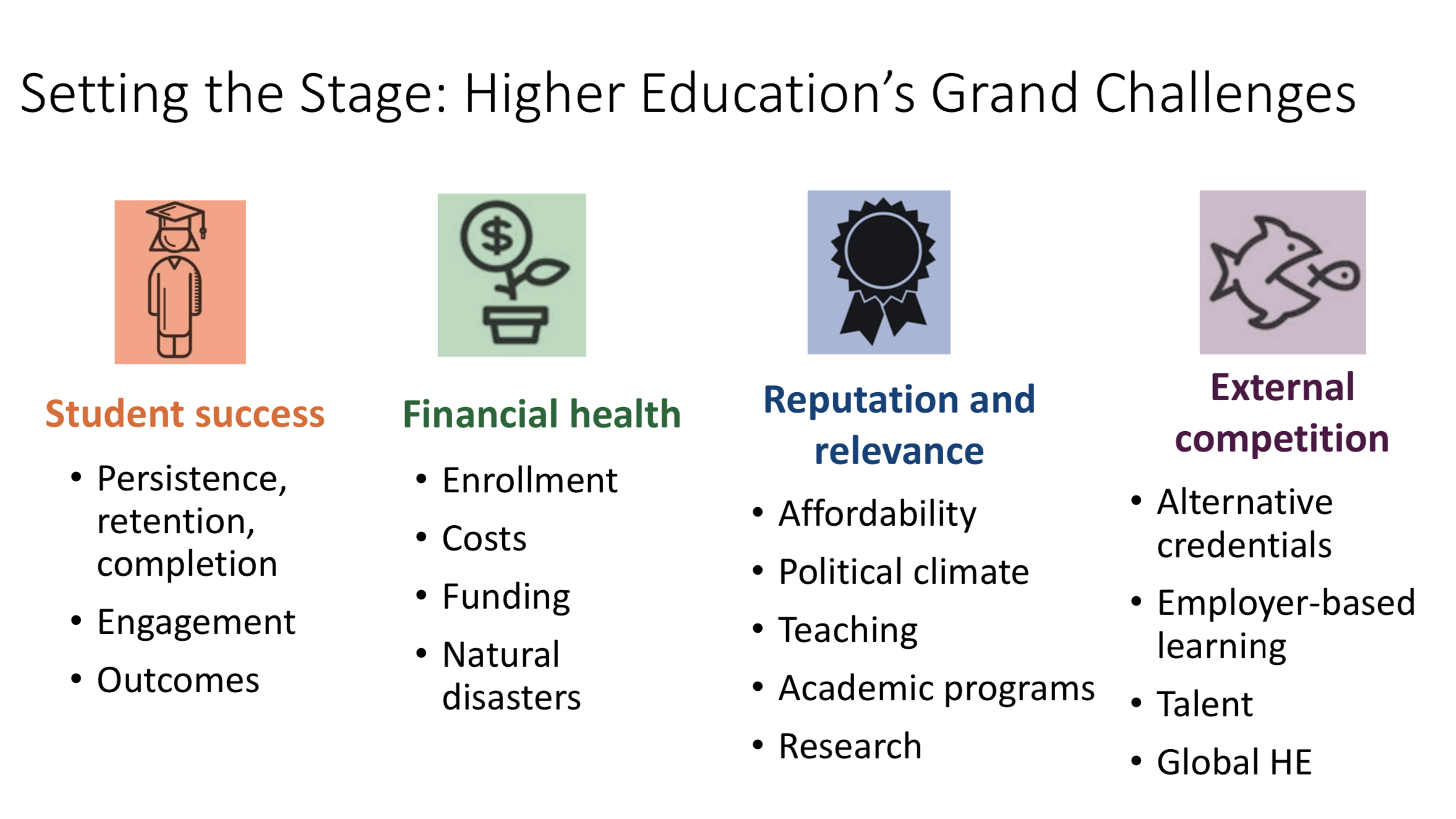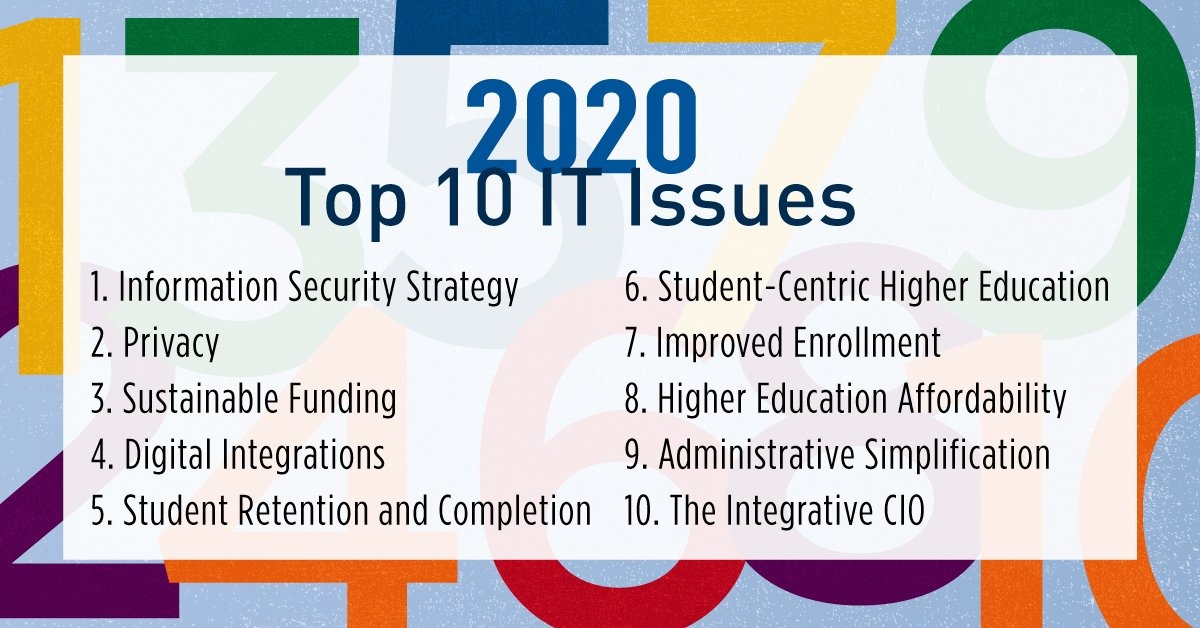EDUCAUSE is a nonprofit association whose mission is to advance higher education through the use of information technology.
EDUCAUSE Annual Conference 2019
October 14–17, 2019
McCormick Place West | Chicago, IL
https://events.educause.edu/annual-conference
Tracks
- Creating a Culture of Data-Informed Decision-Making
- Evolving Infrastructure and Enterprise IT
- Exploring New Boundaries in Teaching and Learning
- Leading and Partnering Across the Institution
- Making an Impact with Innovative Ideas
- Managing and Reducing Information Technology Risk
- Navigating Change
- Supporting the Institution
- Transforming the Student Experience
Notes and documentation
- Educause 2019_JPPispa.pdf
- Slides from the Educause Top 10 IT Issues for 2020: E19Session_Top10Issues.pdf




